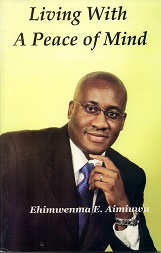(University Press of Florida, 312 pages, $24.95)
Reviewed by Nnedimma Okorafor
There are more than a million blacks in Cuba, although you can’t always tell from what you see in the mainstream American media, which tends to paint the country white. In fact, according to the Central Intelligence Agency, only 37 percent of the population is Caucasian, one percent is Chinese, 51 percent is multiracial and 11 percent is black.
With such racial dynamics coupled with a history of slavery, it’s no surprise that there is racial inequality. Despite Castro’s promise of a “racial democracy,” many Afro-Cubans feel the government sweeps the issue of ethnic or racial identity under the rug, choosing to focus on class instead. Even if their plight has been ignored by both pre- and post-revolutionary governments, these blacks have a very strong voice, or rather a chorus of voices, that shines through in Afro-Cuban Voices, co-edited by Pedro Perez Sarduy and Jean Stubbs. “Afro-Cuban Voices presents the insights of black Cubans who have a deep belief in the Cuban Revolution but who at the same time identify with the integrity and beauty of black Cuban people,” Manning Marble, the director of the Institute of Research in African-American Studies at Columbia University, writes in the book’s introduction.
Juan Benkomo, a craftsman who makes the batá drums, talks about the spread of the African-based religion Santeria, saying that one of changes over the last thirty years has been an increase in religious tolerance. “What’s true is that Santería is on the increase – though the orishas were always venerated in this country, what happened was that their worship was repressed,” he tells Sarduy.
Another interviewee, Reynoldo Peñalver Moral, speaks of the burden of racism during his early years as a journalist in the late 40s. Getting a foot in the door was almost impossible. “Black journalists were not well received in the mainstream press of the time They’d take on a black journalist to do a social column on the black societies not to do them a favor but to attract black readers,” he says.
The book assumes a knowledge of Cuban history that many Americans may not share, but its introduction provides a brief and helpful synopsis, discussing the Cuban Revolution, Castro’s special relationship with blacks of the Diaspora (for example, in the 1960, he supported numerous black anti-colonial struggles around the world) and Cuba’s liaison with the Soviet Union. Throughout, Fidel Castro is portrayed neither as the Satanic Beast the American media paints him, nor as a saint – merely as a politician.
Afro-Cuban Voices is an enlightening read, a book that draws directly from the source, Cubans in Cuba. It’s a powerful experience to hear their voices, and a useful balance to the often incomplete image of Cuba seen in the U.S. The complexity of Afro-Cuban life has things to teach African American readers – I applaud Sarduy and Stubbs for shrinking the gap of ignorance.
Nnedimma Okorafor is a writer living in Chicago.








